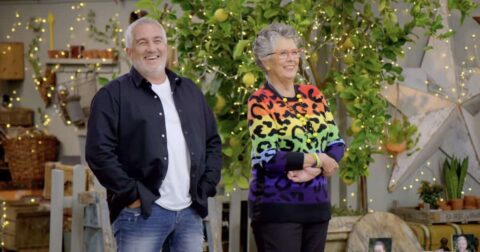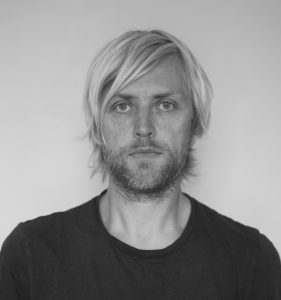Explainer
The Deep History of Racism and Speciesism Behind ‘They’re Eating the Dogs’
Election 2024•7 min read
Reported
Plant-based baker Freya Cox joins this year’s lineup of “The Great British Bake Off”, one of the country’s greatest and most inclusive cultural exports.


Words by Ross Kinghorn
If you were looking for a clear indication of the rising status of veganism in the UK, the inclusion of plant-based baker Freya Cox in this year’s lineup of “The Great British Bake Off”, one of Britain’s greatest cultural exports, wouldn’t be a bad start. This week saw reports suggesting one in three Brits now drink plant-based milk, but watching national television, where the word “cake” is used 10 times more often than “climate change,” you’d struggle to see these shifting attitudes reflected. Instead, farming groups overturn children’s shows that dare to suggest eating less meat can help the environment, while animal farmers themselves are regularly given platforms to broadcast misinformation without scrutiny. So it’s heartening to see the “Bake Off” team open up the white tent to vegans.
One of the appeals of the show has always been its celebration of diversity and multiculturalism, even as it’s cloaked in a twee Britishness that’s historically associated with anything but. This has only increased since the show moved four years ago from the BBC to Channel 4. The more liberal attitude of the channel is evident in the inclusion of counter-culture figures like “Bake Off” presenter Noel Fielding, as well as in producing shows like “Meat the Family”, which attempted to confront people with the sentient beings that were headed for their plate. “Veganism is something that seems to be growing,” said longtime “Bake Off” judge Paul Hollywood, “that’s why it is in.”
But it wouldn’t be a progressive cause if we didn’t sour the moment with a hearty dose of factionalism, and it didn’t take long for holier-than-thou trolls to attack the 19-year-old contestant’s vegan credentials after horse-riding photos were discovered on her social media. We might of course benefit from clarifying our terms this way, but there’s also a risk of distracting from the bigger issue by slipping down a rabbit hole of tortured logic, such as the claim that riding the bus isn’t vegan due to the windscreen-splattered bugs or, a personal favorite, that legalizing cannabis isn’t vegan, since areas that have done so tend to have a corresponding and perhaps unsurprising rise in the sales of Häagen-Dazs. It’s an example of what Richard Dawkins has called “the tyranny of the discontinuous mind”—a search for singular, discrete essences that obscures any gradations.
Another issue is that not all baking challenges on the show are allowed to be made with substitute ingredients. After episode one Cox took to Instagram to apologize for using animal products in one of the three challenges, posting “I wasn’t able to change the technical challenge as it would mean the whole show was unfair… but once the show has finished I have plans to Veganise the recipes for you all, so I hope this makes up for that.” Some may gripe, but she highlights something crucial: the need to reinvent cherished culinary culture for the climate-change era with plant-based ingredients. We’ve been watching youth grapple with a legacy of exploitation with increasing frequency in the UK, from the toppling of slaver statues to campaigns of civil disobedience from groups like Extinction Rebellion. Some cultural inheritance is of course best discontinued, but not necessarily the Bakewell tart. Statues can and should fall, but if they can be made with cruelty-free and eco-friendly ingredients, may malt loaf continue to rise.